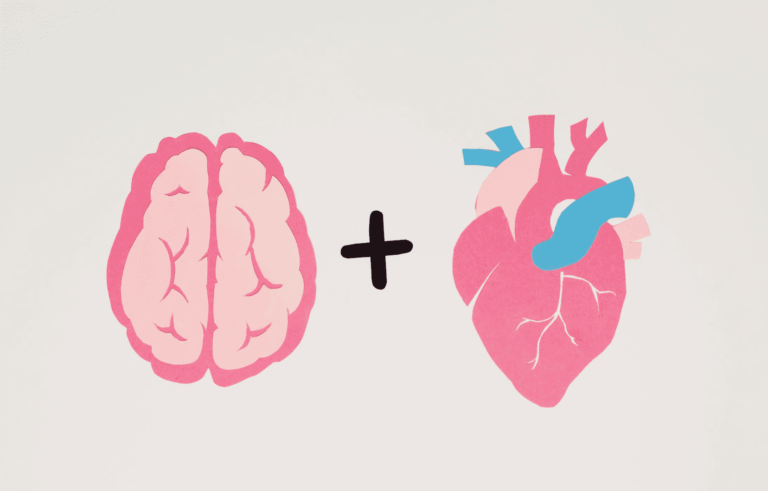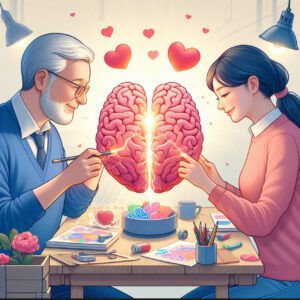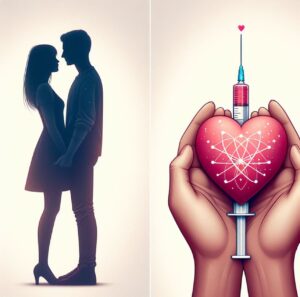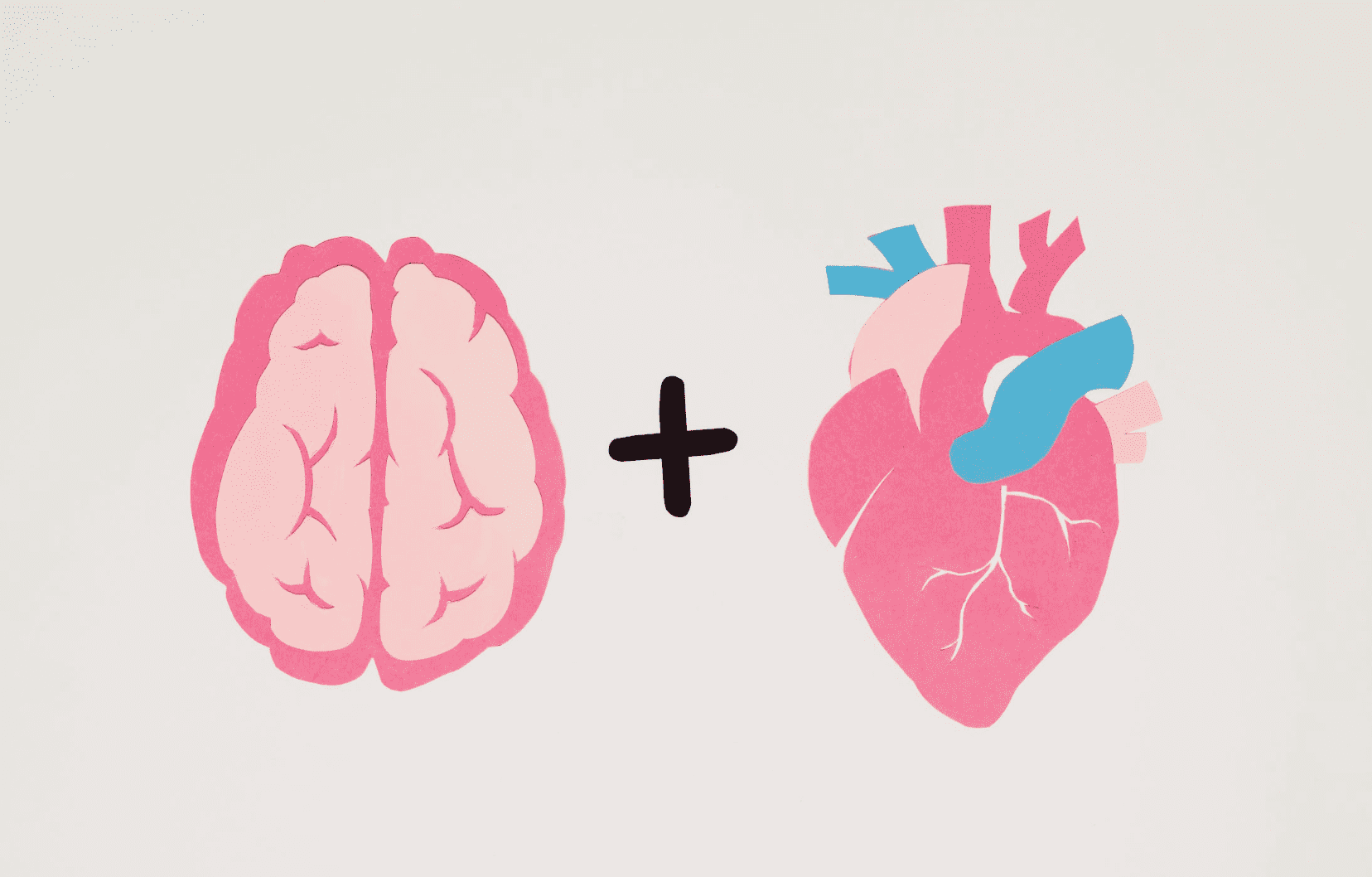

Love: A Powerful Potion for Your Brain and Body
How does love affect your brain and body? Love is an incredible and enigmatic emotion that humans can experience. It can make us happy, exhilarated, fixated, and even addicted. But have you ever wondered how love affects our brain and body? What happens to our cognitive abilities, health, appearance, behavior, and emotions when we fall in love? Below are the thirteen intriguing facts that reveal how love influences your brain and body.
Boosts intelligence and creativity
When an individual is in love, their brain releases more dopamine, a chemical associated with learning, motivation, and reward. This increase in dopamine levels can enhance cognitive abilities and make the individual more receptive to new concepts and experiences. People may even learn a new language or acquire a new skill to impress their partner or communicate their emotions. This phenomenon is an interesting aspect of the human brain and helps us to understand how love can impact our cognitive and behavioral patterns.


Improves health and longevity
Love can boost your immune system and help you to recover from illness more quickly. According to research, individuals in love tend to have lower blood pressure, reduced stress levels, a more robust immune system, and a longer lifespan compared to those who do not. Love can also alleviate pain by activating the same brain regions that painkillers target. For instance, simply holding hands with your partner can help you relieve headaches or discomfort.


Makes you look younger
Research suggests that being in love may give you a healthy glow. Love makes you look like you’re glowing from the inside out. Additionally, being in love can lead to more frequent smiling, reducing wrinkles, and improving mood. Overall, being in love can have numerous benefits, including a positive impact on one’s physical appearance.


Makes you addicted
Love is the magic that makes life worth living. However, just like any other addiction, love can also make you crave more of the same feeling and become obsessed with your partner. This condition is known as love addiction, and it can cause withdrawal anxiety, depression, and insomnia when the relationship ends or becomes unstable. It is essential to recognize the signs of love addiction and seek help if you or someone you know is struggling.


Love makes you blind
Love is a phenomenon that has puzzled scientists for years. It is often said that love is blind, and to some extent, this holds. When you are in love, your brain tends to overlook the flaws and faults of your partner and instead focuses on their favorable characteristics. This is because love activates the reward system in your brain, which makes you idealize your partner and see them as perfect. Understanding how love affects the brain can explain why people fall in love and what makes a successful relationship.


Makes you synchronize
Did you know you tend to synchronize with your partner unconsciously when in love? It involves mirroring their gestures, expressions, and speech patterns, which shows empathy and rapport. Interestingly, you may also synchronize your heartbeats and breathing patterns near each other. This phenomenon highlights the strong connection between two truly loved individuals.


Love makes you jealous
Love is known to bring a sense of security and trust in a relationship, but at times, it can also trigger feelings of jealousy. It is quite natural to experience jealousy when you perceive a threat to your relationship from a potential rival. This emotion can trigger the fight-or-flight response in your body, leading to an increased heart rate, blood pressure, and cortisol levels. Interestingly, jealousy can also activate the same brain regions as physical pain, highlighting how powerful and impactful this emotion can be.


Makes you generous
Love floods your brain with oxytocin, the “love hormone” that creates feelings of closeness and connection. This hormone can make you more considerate and understanding towards others, particularly those suffering or in need. The increased oxytocin levels in your system can also make you more compassionate and willing to share your resources without expecting anything in return. Thus, being in love can positively impact your overall generosity and altruism towards others.


Love makes you happier
It is a well-known fact that love positively affects one’s happiness. Falling in love can trigger the release of endorphins, serotonin, and dopamine – neurotransmitters that create positive emotions like joy, pleasure, and satisfaction. Being in love can also boost your self-esteem and confidence by making you feel appreciated and valued by your partner.


Makes you change
Love is a powerful feeling that can change a person’s life significantly. It can positively and negatively affect an individual’s personality and behavior. You tend to adopt your partner’s habits, preferences, and opinions when in love. This happens because love can make you more flexible and adaptable to new situations and perspectives. However, it’s important to note that this can also have negative consequences if your partner influences you to do harmful or unethical things. Therefore, it’s essential to be aware of the changes in your personality and behavior when you are in love and ensure that these changes do not lead you down a dangerous path.


Love can make you attractive
It is a common observation that when one falls in love, one exhibits specific physical and behavioral changes. For instance, they smile more often, appear more radiant, and exude greater confidence. This transformation can positively impact an individual’s attractiveness towards others and their partner. Smiling is a nonverbal cue that communicates happiness, warmth, and friendliness. A glowing complexion can signify good health, vitality, and increased fertility. Confidence, on the other hand, can convey competence, charisma, and leadership qualities.

It can make you monogamous
It’s interesting to note that humans are not naturally monogamous animals. However, when we fall in love, our brain releases oxytocin and vasopressin, hormones that promote bonding and attachment. These hormones can increase trust, commitment, and devotion to our partners, making us more faithful and loyal to them. It’s amazing how love can have such a profound impact on our behavior and relationships.

Love can make you happy
Love has the potential to bring happiness into your life. Many people seek happiness as one of their primary goals, and love has been proven to be one of the most reliable sources of joy. When you are in love with someone, your brain releases serotonin, a neurotransmitter that regulates mood and well-being. Serotonin helps to boost feelings of calmness, contentment, and satisfaction with life.


Conclusion
It is your time to discover the incredible power of love. Prepare to be amazed by how it can positively impact your life, from boosting your confidence to improving your overall well-being. Let love guide you as you navigate through life’s twists and turns, and let it inspire you to be the best version of yourself. Remember that love is not just a feeling but a state of mind that can shape your reality and lead you to a life of joy, fulfillment, and purpose.
I hope this article about How Does Love Affect Your Brain and Body: 13 Surprising Facts has helped you. If you have any questions or comments, feel free to leave them below. Thanks for reading, and I’ll see you at the next one.
We have a budding YouTube channel, The Indestructible You, that you would love to join. You can discover Psychology Fun facts and tips videos that can help transform your mindset and your life. We truly appreciate you taking the time to read this, and we can’t wait to see you again soon!




